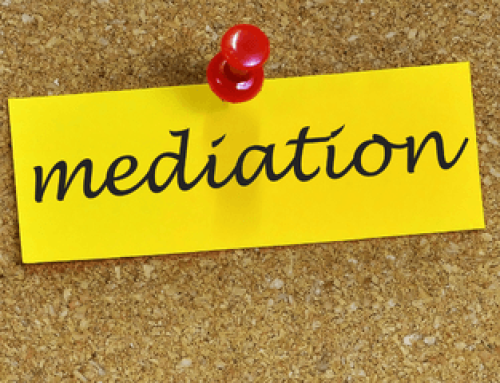What is Mediation?
If you were to ask me my honest assessment of mediation, I’d say this: mediation is horse trading. It’s where you go to wheel and deal to get an agreement made. Now, there’s much more to it than that, but at the end of things, mediation is all about negotiating anything and everything until you get a deal you can live with so you don’t have to go to trial.
Now that I’ve given you my practical assessment, let’s discuss mediation in more lawyerly terms.
Mediation is an alternative dispute resolution process, and is mandatory in divorce cases in many parts of Utah. Mediation in contested divorce cases is required by specific rule in Salt Lake and the surrounding counties.
While the Court might order mediation, mediation is ultimately a voluntary process based on good-faith negotiation. The parties come together (usually not in the same room; that’s just awkward), and with the help of a mediator, discuss their situation and negotiate toward a settlement everyone can live with.
All aspects of divorce are negotiated during mediation: children, money, property, etc.
The mediator is a neutral third-party and not a judge. He or she does not hear evidence or testimony and render a decision as a judge would. Instead, the mediator listens to the parties and helps facilitate communication in order to negotiate a settlement based on their particular circumstances.
Attorneys are usually there during mediations (1) to ensure the parties negotiate effectively, and (2) to ensure the parties’ rights are safeguarded. Other people may attend (e.g., new spouses, significant others, parents), but many times — if not most — their presence is counterproductive. Too many cooks in the kitchen makes for bad food.
If mediation is successful, you’ll sign a settlement agreement. If you sign an agreement during mediation, you have to assume you will be bound by that agreement. Attempting to change a signed mediated settlement after you have agreed to it in writing is very, very difficult. Usually, forcing the change of a mediated settlement can only be done if the other person committed some sort of fraud, and you would need to go to court to force any change. Of course, this applies to the other side as well, which means if you don’t want to change a mediated settlement, your soon-to-be-ex can’t make you.
Mediation is confidential.
This means what is said during mediation cannot later be used in court, and the mediator cannot be forced to testify. Mediation is confidential because the courts want the parties to speak and negotiate as freely as possible.
Plan on at least four hours for mediation, although it may take longer. Sometimes mediations only last two to three hours, but mediations that short usually aren’t successful.







